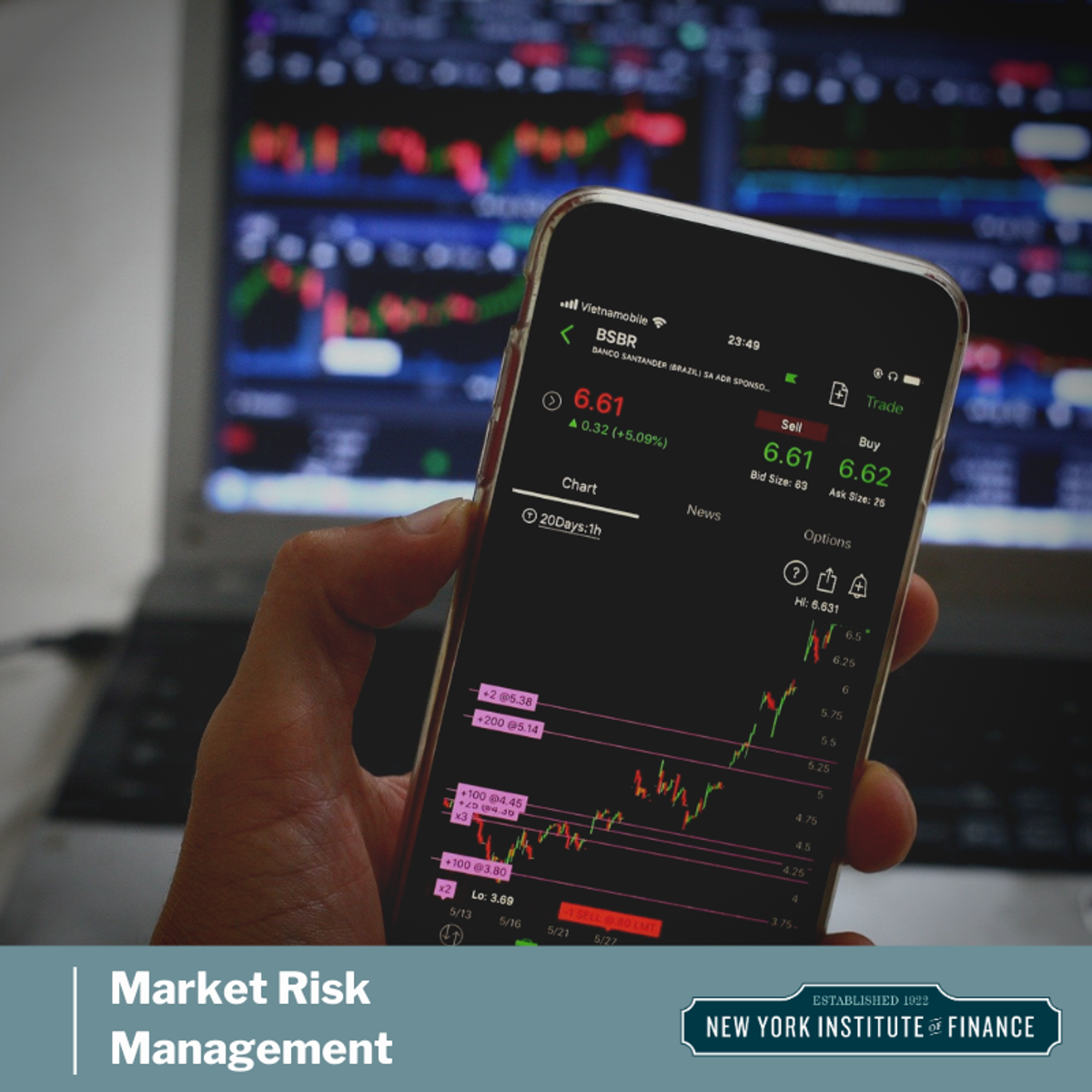Financial Risk Analyst
Navigating the Numbers: A Career as a Financial Risk Analyst
A Financial Risk Analyst is a professional who identifies and analyzes potential risks that could threaten an organization's assets, earning capacity, or overall success. These analysts play a critical role in helping businesses make informed financial decisions by forecasting potential changes and trends and estimating the financial impact of various risks. For individuals with a keen analytical mind and an interest in the financial world, this career path offers a dynamic and intellectually stimulating environment where their work directly contributes to an organization's stability and growth.
Working as a Financial Risk Analyst can be particularly engaging due to the diverse challenges it presents. Analysts often delve into complex financial data, build sophisticated models, and collaborate with various stakeholders to communicate their findings and recommendations. The role is not just about identifying problems; it's about crafting solutions and strategies to mitigate potential losses, making it a proactive and impactful career. Furthermore, the field is constantly evolving with new financial instruments, regulations, and global economic shifts, ensuring that learning and development are continuous aspects of the job.
Overview of Financial Risk Analyst Role
This section provides a foundational understanding of what a Financial Risk Analyst does, the environments they typically work in, and the core duties they perform. It's designed for those new to the concept or considering this career path, offering a clear picture of the role's significance.
Defining the Financial Risk Analyst
A Financial Risk Analyst is fundamentally concerned with identifying, assessing, and managing the financial risks an organization faces. Their primary objective is to protect the company's financial health and ensure its long-term stability by minimizing potential losses and maximizing opportunities within an acceptable risk framework. This involves a deep understanding of financial markets, economic trends, and the specific industry in which their organization operates.
These professionals use a variety of quantitative and qualitative methods to evaluate different types of financial risks, including market risk (changes in market prices), credit risk (the possibility of a borrower defaulting), liquidity risk (the inability to meet short-term financial demands), and operational risk (losses from failed internal processes, people, or systems). Their analysis forms the basis for strategic decision-making at various levels within the organization, influencing investment choices, capital allocation, and overall business strategy.
The insights provided by Financial Risk Analysts are crucial for maintaining a healthy balance between risk and reward. They help ensure that the organization is not overly exposed to potential downsides while still being able to capitalize on profitable ventures. This makes their role indispensable in the modern financial landscape, where uncertainty and volatility are constant companions.
Key Industries Employing Financial Risk Analysts
Financial Risk Analysts are in demand across a wide array of industries, though they are most prominently found in the financial services sector. Banks, investment firms, and insurance companies are major employers, as risk management is a core component of their operations. These institutions rely on risk analysts to navigate complex regulatory environments and manage the inherent risks associated with lending, investing, and underwriting policies.
Beyond traditional finance, the rise of Financial Technology (Fintech) companies has created new avenues for risk analysts. Fintech firms, which leverage technology to provide innovative financial services, face unique risk profiles, including cybersecurity threats and algorithmic trading risks, requiring specialized risk assessment skills. Moreover, large corporations in various other sectors, such as manufacturing, energy, and retail, also employ risk analysts to manage financial exposures related to their operations, supply chains, and market fluctuations.
Government agencies and regulatory bodies also seek the expertise of Financial Risk Analysts to help develop and enforce financial regulations, monitor systemic risks, and ensure the stability of the financial system as a whole. The skills of a risk analyst are transferable, allowing for opportunities in diverse organizational settings focused on financial stability and strategic planning.
To gain a foundational understanding of risk in financial markets, consider exploring online courses. These resources can provide valuable insights into identifying and managing various financial risks, which is a cornerstone of this career.
Core Responsibilities: Assessment, Mitigation, and Compliance
The day-to-day responsibilities of a Financial Risk Analyst are multifaceted. A significant portion of their work involves risk assessment, which includes identifying potential financial threats, analyzing their likelihood and potential impact, and quantifying the exposure. This often requires sifting through vast amounts of data, employing statistical techniques, and building financial models.
Once risks are identified and assessed, the analyst is responsible for developing and recommending mitigation strategies. This might involve suggesting changes to investment portfolios, implementing hedging techniques, improving internal controls, or purchasing insurance. The goal is to reduce the organization's vulnerability to adverse events without unduly stifling growth or profitability.
Regulatory compliance is another critical aspect of the role. Financial Risk Analysts must stay abreast of ever-changing financial laws and regulations, such as Basel III/IV for banks, and ensure that their organization's risk management practices adhere to these requirements. This involves preparing reports for regulatory bodies, participating in audits, and continuously updating internal policies and procedures. Effective communication skills are vital, as analysts must clearly articulate complex risk concepts and mitigation plans to senior management and other stakeholders.
For those interested in the intricacies of market risk and regulatory frameworks, specific courses can deepen your understanding. These courses often cover the practical application of risk management principles and the impact of financial crises on regulatory reforms.
Key Responsibilities and Daily Tasks
This section delves deeper into the specific activities and duties that define the working life of a Financial Risk Analyst. It aims to provide a clear view of the practical applications of their skills and knowledge.
Quantitative Analysis of Risks
A core function of a Financial Risk Analyst is the quantitative analysis of various financial risks, primarily market, credit, and operational risks. Market risk analysis involves evaluating how changes in market variables like interest rates, exchange rates, and commodity prices could affect an organization's investments and overall financial position. Analysts use statistical models and techniques like Value-at-Risk (VaR) to estimate potential losses under different market scenarios.
Credit risk analysis focuses on assessing the likelihood that borrowers or counterparties will fail to meet their financial obligations. This involves analyzing financial statements, credit ratings, and other relevant data to determine creditworthiness and set appropriate credit limits. Analysts might develop sophisticated models to predict default probabilities and estimate potential losses in the event of a default.
Operational risk pertains to losses resulting from inadequate or failed internal processes, people, and systems, or from external events. Analysts in this area work to identify potential operational weaknesses, assess their impact, and develop controls to mitigate them. This can involve analyzing historical loss data, conducting process reviews, and evaluating the effectiveness of internal controls. The quantitative aspect of this analysis helps prioritize which operational risks require the most urgent attention and resources.
Understanding the tools and methods for quantitative analysis is crucial. Online courses can offer practical experience in these areas.
Developing Risk Models and Stress Testing
Financial Risk Analysts are heavily involved in the development and implementation of risk models. These models are mathematical representations of financial processes and are used to simulate the behavior of investments, portfolios, or entire business units under various conditions. Building robust and accurate models requires strong analytical skills, a deep understanding of financial theory, and proficiency in statistical software and programming languages.
A critical application of these models is stress testing. Stress testing involves subjecting the models to extreme, but plausible, scenarios to assess how an organization would perform under adverse conditions, such as a severe economic recession, a sharp market downturn, or a significant operational disruption. The results of stress tests help identify vulnerabilities and inform contingency planning, ensuring the organization can withstand significant shocks.
The development and validation of risk models is an ongoing process. Analysts continually refine their models based on new data, changing market dynamics, and evolving regulatory requirements. They also play a key role in validating models developed by others to ensure their accuracy and appropriateness for the intended purpose. This iterative process of model development, testing, and validation is fundamental to effective risk management.
For foundational knowledge on asset pricing and portfolio management, which are key to understanding risk modeling, consider these resources.
Relevant books can also provide comprehensive insights into risk modeling methodologies.
Collaboration and Communication with Stakeholders
While quantitative analysis and model development are crucial, a Financial Risk Analyst's role is not performed in isolation. Effective collaboration and communication with various stakeholders are paramount to ensure that risk insights are understood and acted upon. Analysts frequently interact with traders, portfolio managers, senior executives, and regulatory bodies.
They must be able to translate complex quantitative findings into clear, concise, and actionable recommendations for non-technical audiences. This involves preparing reports, delivering presentations, and participating in meetings to discuss risk exposures and mitigation strategies. Strong communication skills, both written and verbal, are therefore essential for success in this field.
Furthermore, risk analysts often work in cross-functional teams to address specific risk issues or implement new risk management frameworks. This requires strong interpersonal skills, the ability to build consensus, and a collaborative mindset. The ability to effectively communicate risk information helps foster a strong risk culture within the organization, where risk awareness is embedded in decision-making processes at all levels.
Technical Skills and Tools
Success as a Financial Risk Analyst hinges on a strong foundation of technical skills and proficiency with specific analytical tools. This section outlines the essential competencies required in this data-driven field.
Proficiency in Data Analysis Software
A high degree of proficiency in data analysis software is indispensable for a Financial Risk Analyst. Microsoft Excel remains a fundamental tool for many day-to-day tasks, including data manipulation, basic statistical analysis, and creating financial models. Advanced Excel skills, including macros and VBA programming, can be particularly beneficial.
Beyond Excel, knowledge of database languages like SQL is crucial for extracting and managing large datasets from various sources. Statistical programming languages such as Python and R have become industry standards for more complex data analysis, quantitative modeling, and machine learning applications in risk management. These languages offer powerful libraries and packages specifically designed for financial analysis and risk modeling.
Familiarity with business intelligence tools like Power BI or Tableau is also increasingly valuable. These tools enable analysts to create interactive dashboards and visualizations, making it easier to communicate complex risk insights to stakeholders. Continuous learning in this area is key, as new tools and techniques emerge regularly.
Developing skills in these software packages is essential. Online courses offer structured learning paths for these tools.
Mastery of Risk Management Software
In addition to general data analysis tools, Financial Risk Analysts often need to master specialized risk management software. Platforms like SAS and MATLAB are widely used in the industry for sophisticated statistical modeling, simulations, and developing complex risk analytics. These platforms provide robust environments for building and validating risk models specific to various financial instruments and market conditions.
Many financial institutions also utilize proprietary or third-party risk management systems tailored to their specific needs. These systems might integrate various risk data sources, provide tools for calculating risk metrics, and facilitate regulatory reporting. Gaining experience with such systems, often through on-the-job training or specialized vendor certifications, can be a significant asset.
The ability to adapt to different software environments is important, as the tools used can vary significantly from one organization to another. A strong understanding of the underlying risk management principles will facilitate learning new software more quickly.
Understanding Financial Derivatives and VaR Models
A solid understanding of financial derivatives and risk measurement models, particularly Value-at-Risk (VaR), is crucial for Financial Risk Analysts, especially those working in market risk or with complex financial instruments. Derivatives, such as options, futures, and swaps, are often used for hedging risks, but they also introduce their own set of complexities and potential risks that need to be carefully managed.
Value-at-Risk (VaR) is a widely used statistical technique to quantify the level of financial risk within a firm or investment portfolio over a specific time frame. Analysts must understand the different methodologies for calculating VaR (e.g., historical simulation, variance-covariance method, Monte Carlo simulation), their assumptions, and their limitations. They should also be able to interpret VaR results and communicate their implications to decision-makers.
Beyond VaR, familiarity with other risk metrics and models, such as Expected Shortfall (ES), stress testing methodologies, and scenario analysis, is important for a comprehensive risk assessment. The financial landscape is dynamic, and staying updated on new financial products and risk modeling techniques is a continuous requirement for professionals in this field.
Courses focusing on financial instruments and market dynamics can provide essential knowledge in these areas.
For a deeper dive into financial risk management theory and practice, consider these authoritative texts.
Formal Education Pathways
Embarking on a career as a Financial Risk Analyst typically begins with a strong educational foundation. This section outlines the common academic routes individuals take to enter and advance in this field.
Relevant Undergraduate Degrees
A bachelor's degree is generally the minimum educational requirement for an entry-level position as a Financial Risk Analyst. Degrees in quantitative disciplines are highly favored by employers. Common choices include Finance, Economics, Mathematics, Statistics, or Actuarial Science. These programs provide a solid grounding in the analytical and quantitative skills necessary for the role.
Coursework in areas such as financial accounting, corporate finance, investment analysis, econometrics, calculus, linear algebra, and probability and statistics is particularly relevant. Some universities may offer specialized tracks or concentrations in risk management or financial engineering within their broader finance or economics programs, which can provide a more focused preparation.
Regardless of the specific major, demonstrating strong analytical abilities, problem-solving skills, and attention to detail through academic coursework and projects is crucial. Internships in finance or risk management during undergraduate studies can also significantly enhance a candidate's profile and provide valuable practical experience.
Exploring general finance courses can also provide a broad understanding of the financial landscape.
Advanced Degrees for Specialization
While a bachelor's degree can open doors to entry-level roles, an advanced degree can often accelerate career progression and lead to more specialized or senior positions in financial risk management. A Master's degree in Financial Engineering, Quantitative Finance, Financial Mathematics, or Risk Management is highly regarded in the industry. These programs typically offer a more intensive and specialized curriculum focusing on advanced quantitative techniques, financial modeling, and risk management theory.
An MBA (Master of Business Administration) with a concentration in Finance or Risk Management can also be a valuable credential, particularly for those aspiring to management and leadership roles. MBA programs often emphasize strategic thinking, leadership skills, and a broader understanding of business operations, in addition to financial expertise.
The decision to pursue an advanced degree often depends on career aspirations and the specific area of risk management an individual wishes to enter. For highly technical roles, such as quantitative analyst or risk modeler, a specialized master's degree is often preferred, if not required.
For those looking to gain specialized knowledge, particularly in areas like financial development or corporate finance, advanced courses can be beneficial.
PhD Research in Quantitative Risk Modeling
For individuals interested in pushing the boundaries of financial risk management through research and innovation, pursuing a PhD is a viable path. A doctorate in fields such as Finance, Economics, Statistics, or Mathematics with a research focus on quantitative risk modeling can lead to opportunities in academia, as well as highly specialized roles in financial institutions, regulatory bodies, or consulting firms.
PhD programs provide rigorous training in advanced theoretical concepts, cutting-edge research methodologies, and the development of novel approaches to risk measurement and management. Doctoral research might focus on areas like developing new risk models, improving stress testing techniques, analyzing systemic risk, or exploring the implications of new financial technologies for risk management.
While a PhD is not a typical requirement for most Financial Risk Analyst positions, it can be advantageous for roles that involve significant research and development, thought leadership, or the creation of innovative risk solutions. Individuals with PhDs are often sought after for their deep expertise and ability to tackle complex, unstructured problems in the financial risk domain.
Foundational knowledge in econometrics is often a prerequisite or core component of advanced financial research.
Certifications and Professional Development
In the dynamic field of financial risk analysis, continuous learning and professional development are key. Certifications can play a significant role in demonstrating expertise, enhancing credibility, and advancing one's career.
Financial Risk Manager (FRM) Certification
The Financial Risk Manager (FRM) certification, offered by the Global Association of Risk Professionals (GARP), is one of the most globally recognized and respected credentials for financial risk management professionals. It is designed to measure a candidate's ability to identify, measure, and manage risk in a real-world setting. The FRM exam covers a broad range of topics, including quantitative analysis, financial markets and products, valuation and risk models, market risk measurement and management, credit risk measurement and management, and operational and integrated risk management.
Earning the FRM designation typically requires passing two rigorous exams and demonstrating two years of relevant professional work experience in financial risk management. The certification is highly valued by employers in banking, investment management, consulting, and regulatory agencies. It signifies a strong understanding of risk management principles and practices, and a commitment to the profession.
Many professionals find that preparing for the FRM exams deepens their knowledge and skills significantly, even if they already have academic qualifications in finance or related fields. It provides a standardized benchmark of expertise recognized worldwide. For those committed to a career in risk management, the FRM is often considered a gold standard.
To complement formal certifications, books can provide in-depth knowledge. The "Financial Risk Manager Handbook" is a well-regarded resource for those pursuing the FRM or seeking comprehensive knowledge.
Professional Risk Manager (PRM) Accreditation
The Professional Risk Manager (PRM) designation, offered by the Professional Risk Managers' International Association (PRMIA), is another highly regarded certification for risk management professionals. The PRM program aims to set the standard for risk management education and certification, focusing on the practical application of risk management principles across various industries and risk types.
The PRM certification process involves passing a series of exams that cover topics such as financial theory, financial instruments and markets, mathematical foundations of risk measurement, risk management practices, and case studies. Similar to the FRM, the PRM is globally recognized and demonstrates a high level of competence in risk management.
Choosing between the FRM and PRM often comes down to individual career goals and preferences, as both are well-respected in the industry. Some professionals may even choose to pursue both certifications to showcase a broad and deep understanding of financial risk management. Continued professional development, including participation in industry conferences and workshops, is also encouraged by PRMIA to maintain the designation.
Understanding various types and sources of financial risk is fundamental to both the FRM and PRM certifications.
Chartered Financial Analyst (CFA) for Broader Finance Integration
While the FRM and PRM are specialized risk management certifications, the Chartered Financial Analyst (CFA) designation, offered by the CFA Institute, is a broader credential focused on investment management and financial analysis. However, the CFA curriculum includes significant coverage of risk management concepts, making it a valuable certification for Financial Risk Analysts, particularly those whose roles involve a strong connection to investment decision-making or portfolio management.
The CFA program consists of three levels, each requiring a comprehensive exam. Topics covered include ethical and professional standards, quantitative methods, economics, financial reporting and analysis, corporate finance, equity investments, fixed income, derivatives, alternative investments, and portfolio management and wealth planning. The breadth of the CFA charter makes it highly respected across the entire finance industry.
For Financial Risk Analysts looking to develop a more holistic understanding of the investment process or to move into roles that bridge risk management and investment strategy, the CFA designation can be a significant asset. It demonstrates a commitment to the highest ethical standards and a comprehensive mastery of financial analysis and investment principles.
Books on advanced financial risk management can offer further insights relevant to CFA candidates and practicing risk analysts.
Career Progression and Salary Trends
Understanding the potential career trajectory and earning potential is a key consideration for anyone contemplating a career as a Financial Risk Analyst. This section provides insights into typical career paths and salary expectations, though actual figures can vary based on location, experience, and employer.
Entry-Level Roles and Advancement
Individuals typically enter the financial risk analysis field in roles such as Risk Analyst, Junior Quantitative Analyst, or Credit Risk Analyst. In these initial positions, the focus is often on supporting senior analysts, performing data collection and analysis, contributing to model building and validation, and preparing reports. This stage is crucial for building foundational skills and gaining practical experience in applying risk management principles.
With a few years of experience and a proven track record, analysts can advance to positions like Senior Risk Analyst. Responsibilities at this level often include managing more complex projects, taking on greater autonomy in analysis and decision-making, and potentially mentoring junior staff. The U.S. Bureau of Labor Statistics (BLS) indicates that the overall employment of financial analysts, which includes risk specialists, is projected to grow, suggesting a positive outlook for job seekers.
According to ZipRecruiter, as of May 2025, the average annual pay for an Entry Level Risk Analyst in the United States can vary, with some data suggesting an hourly wage around $40.49, while other sources indicate starting salaries could be around $59,510 annually. Salary.com data from May 2025 shows an average for a Risk Analyst I around $64,747. These figures can be influenced by factors like location, education, and the specific industry.
Mid-Career Paths and Specialization
As Financial Risk Analysts gain more experience, typically around five to ten years, they may progress to mid-career roles such as Senior Risk Manager, Portfolio Analyst with a risk focus, or specialized roles like Market Risk Manager or Credit Risk Manager. At this stage, professionals often develop deeper expertise in a particular type of risk or industry. Their responsibilities may expand to include leading teams, developing risk management strategies, and interacting more directly with senior management and regulatory bodies.
Compensation at the mid-career level generally increases. For instance, junior risk analysts with approximately six years of experience might earn between £29,000 and £44,000 in the UK, according to Prospects.ac.uk. In the US, experienced risk analysts can make upwards of $100,000, with some data suggesting that the majority of Financial Risk Analyst salaries range between $70,000 and $110,500. Salary.com indicates a Risk Analyst III averages around $104,873. Pursuing advanced certifications like the FRM or PRM can also enhance earning potential and career opportunities at this stage.
This phase of a risk analyst's career often involves making significant contributions to the organization's risk framework and playing a key role in shaping its risk appetite and culture. Opportunities may also arise to move into related fields such as consulting or to take on roles with broader financial management responsibilities.
Executive Positions and Leadership
With extensive experience (often seven to ten years or more) and a strong track record of leadership and strategic thinking, Financial Risk Analysts can aspire to executive positions such as Chief Risk Officer (CRO), Head of Risk Strategy, or Managing Director in a risk function. These roles involve overseeing the entire risk management framework of an organization, setting the strategic direction for risk management, and representing the organization to regulators, investors, and the board of directors.
Salaries at the executive level can be substantial. Prospects.ac.uk suggests that senior/management level risk professionals (with seven to ten years' experience) in the UK can earn in the region of £46,500 to £78,000, with potential for higher earnings in major financial centers like London. In the US, experienced risk analysts in senior roles can earn well over $120,000, potentially reaching $150,000-$200,000 or higher, particularly in demanding sectors or large corporations. ZipRecruiter data from May 2025 shows an average annual pay for a Senior Financial Risk Analyst in the US at $109,846, with top earners making $137,000. The BLS reported a median annual wage for financial risk specialists as $106,000 in May 2024.
Leadership in risk management requires not only deep technical expertise but also exceptional communication, strategic, and interpersonal skills. The increasing importance of risk management in the wake of financial crises and evolving regulatory landscapes has elevated the profile of senior risk professionals, often placing them at the heart of organizational decision-making. The overall job outlook for financial analysts is projected to grow 9 percent from 2023 to 2033, which is much faster than the average for all occupations, indicating continued demand for these skilled professionals.
For those aiming for leadership, understanding broader financial concepts is essential. Consider exploring general financial management principles to complement your risk expertise.
Industry Applications and Sector-Specific Risks
The principles of financial risk analysis are applied across various industries, but the specific types of risks and regulatory frameworks can differ significantly. This section explores some key sector-specific applications and challenges.
Banking: Regulatory Compliance and Credit Frameworks
In the banking sector, Financial Risk Analysts play a pivotal role in ensuring compliance with stringent regulatory frameworks like Basel III and the upcoming Basel IV. These international standards dictate capital adequacy requirements, stress testing methodologies, and liquidity risk management. Analysts are responsible for interpreting these regulations, implementing necessary internal controls and reporting mechanisms, and ensuring the bank maintains sufficient capital to absorb potential losses.
Credit risk is a paramount concern for banks. Risk analysts develop and manage sophisticated credit risk frameworks to assess the creditworthiness of borrowers, from individuals to large corporations. This involves analyzing financial health, industry trends, and macroeconomic factors to assign credit ratings and determine appropriate lending terms. They also monitor loan portfolios continuously to identify early warning signs of potential defaults and manage overall credit exposure.
Market risk, arising from fluctuations in interest rates, exchange rates, and other market prices, and operational risk, stemming from internal failures or external events, are also critical areas of focus. Analysts in banking utilize advanced models to quantify these risks and develop strategies to mitigate them, contributing directly to the stability and soundness of the institution. The European Central Bank, for example, employs financial risk analysts to design and maintain risk management frameworks for monetary policy operations.
Courses specializing in risk within financial institutions can be very beneficial for those targeting the banking sector.
Fintech: Algorithmic Risk and Decentralized Finance (DeFi)
The rapidly evolving Fintech sector presents unique challenges and opportunities for Financial Risk Analysts. As financial services become increasingly digitized and automated, new types of risks emerge. Algorithmic risk, associated with the use of automated trading systems and complex algorithms for decision-making, is a key concern. Analysts must understand how these algorithms function, identify potential flaws or biases, and develop controls to prevent unintended consequences or market disruptions.
Decentralized Finance (DeFi) is another area creating novel risk landscapes. DeFi platforms, built on blockchain technology, aim to provide traditional financial services like lending, borrowing, and trading without intermediaries. While offering innovation, DeFi also introduces risks related to smart contract vulnerabilities, regulatory uncertainty, cybersecurity threats, and market volatility specific to crypto-assets. Risk analysts in this space need to be adept at understanding these new technologies and developing frameworks to assess and manage these emerging risks.
Cybersecurity is a particularly critical risk for Fintech companies, given their reliance on digital platforms and the sensitive data they handle. Analysts work closely with cybersecurity teams to identify vulnerabilities, assess potential impacts of cyberattacks, and implement robust security measures. The dynamic and innovative nature of Fintech requires risk professionals to be adaptable, forward-thinking, and comfortable with ambiguity.
Understanding the digital transformation of financial services is key for those interested in Fintech.
Insurance: Catastrophic Risk Modeling and Solvency
In the insurance industry, Financial Risk Analysts are crucial for managing the underwriting risks and ensuring the long-term solvency of the company. A significant focus is on catastrophic risk modeling, particularly for property and casualty insurers. This involves using sophisticated models to assess the potential financial impact of large-scale natural disasters like hurricanes, earthquakes, and floods, or man-made catastrophes.
These models incorporate historical data, scientific research, and probabilistic methods to estimate the frequency and severity of such events. The outputs help insurers set appropriate premiums, manage their exposure in high-risk areas, and determine the amount of reinsurance needed to protect their balance sheets. Analysts also work on assessing other types of insurance risks, such as longevity risk for life insurers or liability risks.
Solvency analysis is another core responsibility. Insurers must maintain sufficient capital to meet their obligations to policyholders, even under adverse scenarios. Risk analysts play a key role in solvency assessments, stress testing, and ensuring compliance with regulatory capital requirements like Solvency II in Europe. Their work directly contributes to the financial stability of the insurer and the protection of its policyholders.
For those interested in the insurance sector, understanding the specific financial risks faced by insurers is vital.
Books covering general financial risk management can also provide a solid foundation applicable across various sectors, including insurance.
Ethical and Regulatory Challenges
Financial Risk Analysts operate in an environment shaped by complex ethical considerations and an ever-evolving regulatory landscape. Navigating these challenges successfully is crucial for both individual career integrity and the stability of the financial system.
Balancing Profitability with Regulatory Constraints
A fundamental challenge for Financial Risk Analysts is to help their organizations strike the right balance between pursuing profitability and adhering to regulatory constraints. Financial regulations are designed to ensure the stability of the financial system and protect consumers, but they can sometimes be perceived as limiting business opportunities or increasing operational costs. Analysts must possess a thorough understanding of applicable regulations and their implications for business activities.
They play a key role in developing risk management frameworks that not only comply with regulatory requirements but also support the organization's strategic objectives. This often involves finding innovative solutions that allow the firm to manage risks effectively while still pursuing growth and profitability within acceptable boundaries. This requires strong analytical skills, sound judgment, and the ability to communicate complex trade-offs to senior management.
The regulatory environment is constantly changing, often in response to financial crises or emerging risks. Risk analysts must stay informed about these developments and adapt their practices accordingly. This continuous learning and adaptation are essential for maintaining compliance and ensuring the organization's long-term sustainability.
Understanding payment systems and their associated risks is important in many financial roles, touching on both profitability and regulatory concerns.
Data Privacy in AI-Driven Risk Models
The increasing use of Artificial Intelligence (AI) and Machine Learning (ML) in financial risk modeling presents new ethical challenges, particularly concerning data privacy. AI-driven models often rely on vast amounts of data, including sensitive customer information, to make predictions and assess risks. While these technologies can enhance the accuracy and efficiency of risk management, they also raise concerns about how personal data is collected, used, and protected.
Financial Risk Analysts working with AI models must be acutely aware of data privacy regulations, such as GDPR in Europe or CCPA in California. They need to ensure that data usage complies with these laws and that appropriate safeguards are in place to prevent unauthorized access or misuse of sensitive information. This includes implementing techniques for data anonymization or pseudonymization where appropriate and ensuring transparency in how AI models make decisions.
Ethical considerations also extend to potential biases in AI algorithms. If the data used to train AI models reflects historical biases, the models may perpetuate or even amplify these biases, leading to unfair or discriminatory outcomes. Risk analysts have a responsibility to work towards developing and deploying AI systems that are fair, transparent, and accountable. The European Central Bank acknowledges that while AI can enhance risk management, challenges like algorithmic bias need to be addressed.
Managing Conflicts of Interest in Risk Reporting
Financial Risk Analysts can sometimes face conflicts of interest, particularly when their assessments or recommendations might be perceived as hindering profitable business activities or challenging the views of senior management. Maintaining objectivity and independence in risk reporting is paramount to the integrity of the risk management function.
Analysts have an ethical obligation to present their findings honestly and accurately, even if they are unpopular or lead to difficult decisions. This requires courage, strong ethical principles, and the ability to communicate sensitive information tactfully but firmly. A robust risk governance framework within the organization, with clear reporting lines and protection for those who raise concerns, is essential to help analysts navigate these potential conflicts.
Professional codes of conduct, such as those promoted by organizations like GARP and PRMIA, provide guidance on ethical behavior and professional standards for risk managers. Adherence to these codes helps build trust and credibility in the risk management profession and reinforces the importance of acting with integrity in all professional dealings.
Understanding the broader context of financial operations, such as special drawing rights, can inform a risk analyst's perspective on systemic issues.
General books on financial risk management often touch upon ethical considerations and the importance of robust reporting.
Future Trends in Financial Risk Analysis
The field of financial risk analysis is not static; it is continuously shaped by technological advancements, evolving global challenges, and new regulatory priorities. Understanding these future trends is crucial for aspiring and current risk professionals to stay ahead of the curve.
AI/ML in Predictive Risk Analytics
Artificial Intelligence (AI) and Machine Learning (ML) are set to revolutionize predictive risk analytics. These technologies can process and analyze vast amounts of structured and unstructured data at speeds far exceeding human capabilities, leading to more accurate and timely risk assessments. For example, AI algorithms can identify subtle patterns and correlations in market data to predict potential downturns or detect fraudulent activities with greater precision. Financial institutions are increasingly adopting AI/ML for credit risk modeling, operational risk management, and regulatory compliance.
The integration of AI/ML allows for dynamic risk scoring, where risk profiles are continuously updated based on real-time data feeds. This enables proactive risk mitigation rather than reactive responses. However, the adoption of AI also brings challenges, such as the need for specialized talent, concerns about model explainability ("black box" algorithms), and potential biases embedded in the data or algorithms themselves. As these technologies mature, financial risk analysts will need to develop skills in working with AI/ML tools and understanding their implications.
According to a McKinsey report, generative AI could fundamentally change financial institutions' risk management by automating and enhancing processes from compliance to climate risk control. KPMG also notes that AI/ML has become synonymous with improving efficiency and reducing costs in risk management. The trend is towards more intelligent automation, freeing up human analysts to focus on strategic decision-making.
To prepare for this AI-driven future, professionals can explore courses and resources focused on data science and its application in finance. Exploring resources on Artificial Intelligence through platforms like OpenCourser can provide foundational knowledge.
Climate Risk Integration into Financial Models
The integration of climate-related risks into financial models is a rapidly growing trend. Financial institutions are increasingly recognizing that climate change poses significant physical risks (e.g., damage from extreme weather events) and transition risks (e.g., financial impacts of shifting to a low-carbon economy). Regulators and investors are also putting more pressure on companies to assess and disclose their climate-related financial risks.
Financial Risk Analysts are now tasked with developing models that can quantify the potential financial impact of various climate scenarios. This involves incorporating data on carbon emissions, climate projections, and policy changes into traditional financial risk models. The goal is to understand how climate change could affect asset valuations, creditworthiness, and overall portfolio performance. This is a complex undertaking due to the long-term nature of climate risks and the inherent uncertainties in climate projections.
The Task Force on Climate-related Financial Disclosures (TCFD) has provided a framework for companies to disclose these risks, and many financial institutions are aligning their reporting accordingly. This trend requires risk analysts to develop new expertise in climate science, environmental policy, and sustainable finance. PwC highlights that climate risk has moved to the forefront of strategic discussions in the financial sector.
Courses on climate scenario analysis and sustainable finance can equip analysts with the necessary skills.
For those wanting a broader perspective, Sustainability and Environmental Sciences are relevant categories to explore on OpenCourser.
Cybersecurity Threats as a Systemic Risk Factor
Cybersecurity threats are increasingly being recognized as a potential systemic risk factor for the financial system. As financial institutions become more interconnected and reliant on digital technologies, a major cyberattack on one institution could quickly spread and disrupt the wider financial ecosystem. The average cost of a data breach in the financial sector is already substantial, and the potential for even larger, systemic events is a growing concern.
Financial Risk Analysts are playing an increasingly important role in assessing and managing cyber risk. This involves not only understanding the technical aspects of cybersecurity but also quantifying the potential financial impact of cyber incidents, such as direct financial losses, reputational damage, and regulatory fines. They work with IT and security teams to identify vulnerabilities, conduct cyber risk assessments, and develop strategies to mitigate these threats.
The sophistication of cyberattacks is constantly evolving, with threats ranging from ransomware to advanced persistent threats (APTs). This requires a proactive and adaptive approach to cyber risk management. Future trends may include greater use of AI in detecting and responding to cyber threats, as well as increased collaboration and information sharing between financial institutions and regulatory bodies to combat systemic cyber risks. The International Monetary Fund (IMF) has warned that cyber attacks in the financial sector pose a major threat to global financial stability.
Given the importance of this area, gaining knowledge in Cybersecurity is highly recommended for financial risk professionals. You can find many relevant courses using OpenCourser's search or by browsing categories.
Frequently Asked Questions (Career Focus)
This section addresses common questions that individuals exploring a career as a Financial Risk Analyst may have, providing quick insights into key aspects of the profession.
What is the average salary for entry-level vs. senior roles?
Salaries for Financial Risk Analysts vary significantly based on experience, location, education, certifications, and the specific industry and company. For entry-level positions, salaries in the US can range roughly from $59,000 to $70,000 annually, with some sources like ZipRecruiter suggesting an average hourly rate that translates to a higher annual figure. For example, Salary.com data from May 2025 showed the average for a Risk Analyst I around $64,747. Prospects.ac.uk indicates typical starting salaries for risk technicians in the UK are around £23,000.
As professionals gain experience and move into senior roles, their earning potential increases significantly. Senior Financial Risk Analysts in the US can expect average annual salaries in the range of $100,000 to $130,000 or more, with top earners potentially exceeding $175,000 to $200,000, especially in high-demand sectors or major financial hubs. For example, ZipRecruiter reported an average of $109,846 for Senior Financial Risk Analysts as of May 2025. The U.S. Bureau of Labor Statistics noted a median annual wage for financial risk specialists of $106,000 in May 2024. In the UK, senior/management level roles with seven to ten years of experience can command salaries from £46,500 to £78,000, and potentially higher in London.
It's important to research salary benchmarks specific to your geographic region and target industry, as these figures can fluctuate. Factors like bonuses and benefits packages also contribute to overall compensation.
Can I transition from a non-finance background into risk analysis?
Transitioning into financial risk analysis from a non-finance background is possible, particularly if you have strong quantitative, analytical, and problem-solving skills. Individuals with degrees in fields like mathematics, statistics, engineering, computer science, or physics often possess the foundational abilities valued in risk management. However, some focused effort will likely be required to bridge the gap.
To make a successful transition, consider pursuing relevant certifications like the FRM or PRM, which can demonstrate your commitment and knowledge in the field. Taking online courses in finance, risk management, and financial modeling can also help build the necessary domain expertise. Networking with professionals in the field and seeking out entry-level roles or internships that offer opportunities to gain practical experience can be beneficial.
Highlighting transferable skills on your resume and during interviews is crucial. Emphasize your analytical capabilities, experience with data analysis tools (even if used in a different context), and any projects that demonstrate your ability to assess and manage complex situations. With dedication and a clear plan, a career change into financial risk analysis is achievable for those with the right aptitudes and willingness to learn.
OpenCourser provides a vast library of courses that can help bridge knowledge gaps. You can explore finance and economics courses to build a strong foundation.
How critical are programming skills for modern risk roles?
Programming skills have become increasingly critical for modern Financial Risk Analyst roles. Proficiency in languages like Python and R is highly valued for data manipulation, statistical analysis, building quantitative models, and automating tasks. SQL is also essential for database management and data extraction. While advanced Excel skills remain important, the complexity and volume of data in today's financial world often necessitate more powerful programming tools.
Many employers now list programming skills as a requirement or strong preference in job descriptions for risk analysts. The ability to write code allows analysts to perform more sophisticated analyses, develop custom risk models, and handle large datasets more efficiently. As AI and machine learning become more prevalent in risk management, programming skills will become even more indispensable.
If you are new to programming, there are many online resources and courses available to help you learn these languages. Starting with Python, due to its versatility and extensive libraries for data science and finance, is often a good choice. Even a foundational understanding of programming concepts and the ability to work with code can be a significant advantage in the job market and in performing daily tasks as a risk analyst. You can search for Python for finance courses on OpenCourser.
What industries have the highest demand for risk analysts?
The highest demand for Financial Risk Analysts traditionally comes from the financial services sector. This includes commercial and investment banks, insurance companies, asset management firms, and brokerage houses. These institutions inherently deal with significant financial risks as part of their core business operations and are subject to extensive regulatory oversight, necessitating robust risk management functions.
In recent years, the Fintech industry has also emerged as a significant source of demand for risk analysts. As these technology-driven financial companies grow, they require professionals who can navigate the unique risks associated with digital platforms, algorithmic trading, and new financial products like cryptocurrencies. Consulting firms that provide risk management advisory services to various industries also hire a substantial number of risk analysts.
Beyond finance, larger corporations in sectors like energy, manufacturing, and healthcare are increasingly recognizing the importance of sophisticated financial risk management. The demand can also be influenced by economic conditions and regulatory changes; for example, periods of economic volatility or the implementation of new financial regulations often lead to increased hiring of risk professionals. The risk analytics market itself is projected for significant growth.
How do certifications impact job prospects?
Certifications like the Financial Risk Manager (FRM) and Professional Risk Manager (PRM) can significantly impact job prospects for Financial Risk Analysts. These credentials are globally recognized and demonstrate a standardized level of knowledge and competence in risk management. Holding such a certification can make a candidate stand out in a competitive job market, especially for roles that specifically require or prefer certified professionals.
Certifications can be particularly beneficial for individuals transitioning from other fields or those looking to advance to more senior or specialized risk management positions. They can help validate skills, enhance credibility with employers and clients, and potentially lead to higher earning potential. The rigorous preparation required for these exams also ensures that candidates develop a deep and comprehensive understanding of risk management principles and practices.
While certifications are not always a strict requirement for every risk analyst role, particularly at the entry level, they are highly valued by many employers and are often seen as a commitment to professional development and excellence in the field. The Chartered Financial Analyst (CFA) charter, while broader, also holds considerable weight, especially for roles that blend risk management with investment analysis.
You can find more information about professional development and career paths in our Career Development section on OpenCourser.
Is remote work common in this field post-pandemic?
The prevalence of remote work for Financial Risk Analysts, like many professions, has increased following the COVID-19 pandemic. Many financial institutions and companies have adopted more flexible work arrangements, including hybrid models (a mix of in-office and remote work) and, in some cases, fully remote positions. The feasibility of remote work often depends on the specific role, the company's culture and policies, and the nature of the tasks involved.
Roles that are heavily reliant on data analysis, modeling, and report writing can often be performed effectively in a remote setting, provided the necessary technology and security measures are in place. However, tasks that require extensive collaboration with teams, direct interaction with clients, or access to highly sensitive on-premise systems might necessitate more in-office presence.
As organizations continue to adapt to new working models, the availability of remote opportunities for Financial Risk Analysts is likely to persist, though it may vary by employer and location. Job seekers interested in remote work should look for positions that explicitly state remote or hybrid options and discuss work arrangements during the interview process. The trend towards digitalization in finance may further support the viability of remote work in this field.
Embarking on Your Journey
A career as a Financial Risk Analyst offers a path filled with intellectual challenges, significant responsibilities, and the opportunity to make a tangible impact on an organization's success and stability. It requires a strong analytical aptitude, a dedication to continuous learning, and the ability to navigate a complex and ever-evolving financial landscape. For those drawn to the intersection of finance, mathematics, and strategy, this can be a deeply rewarding profession.
If you are considering this career, remember that the journey often begins with a solid educational foundation in a quantitative field, supplemented by practical experience and potentially professional certifications. The field is demanding, but for those who are prepared to meet its rigors, the prospects for growth and development are considerable. Whether you are a student exploring options, a professional considering a career pivot, or someone looking to advance in the field, the resources available, including online courses and professional communities, can provide invaluable support. OpenCourser offers tools to manage your learning journey and explore countless educational opportunities.
The path to becoming a Financial Risk Analyst may seem daunting, but with clear goals, focused effort, and a commitment to lifelong learning, it is an attainable and worthwhile pursuit. The skills you develop will be valuable not only in this specific role but also in a wide range of other analytical and financial professions. We encourage you to explore further, ask questions, and take the steps needed to build a fulfilling career in financial risk analysis.
Further Resources and Useful Links
To continue your exploration of a career as a Financial Risk Analyst and related fields, the following resources may be helpful:
Bureau of Labor Statistics (BLS) Occupational Outlook Handbook: Provides detailed information on financial analysts, including job duties, education, pay, and job outlook. You can find this information at www.bls.gov.
Global Association of Risk Professionals (GARP): The issuing body for the FRM certification, GARP's website (www.garp.org) offers resources for risk professionals.
Professional Risk Managers' International Association (PRMIA): The organization behind the PRM designation, PRMIA (www.prmia.org) provides resources and networking opportunities for risk managers.
OpenCourser: For finding relevant online courses to build foundational and advanced skills in finance, data analysis, and risk management, explore the extensive catalog at OpenCourser's browse page.
Remember that continuous learning is key in this dynamic field. Engaging with industry publications, attending webinars and conferences, and networking with other professionals will be invaluable throughout your career.



























